Information Services is a strategic asset for UMKC’s missions of teaching and learning, research, service and economic development. We continued to make progress toward our defined goals and this document details the progress we have made during the first half of 2022.
During the first 6 months of 2022, IS Support Services saw a reduced number of requests compared to previous years, returning to pre-pandemic levels of requests. The total number of requests for this period was 10,655, which is comparable to the 2018 pre-pandemic period. The most requested areas for support were related to Office 365 and new hardware installations.
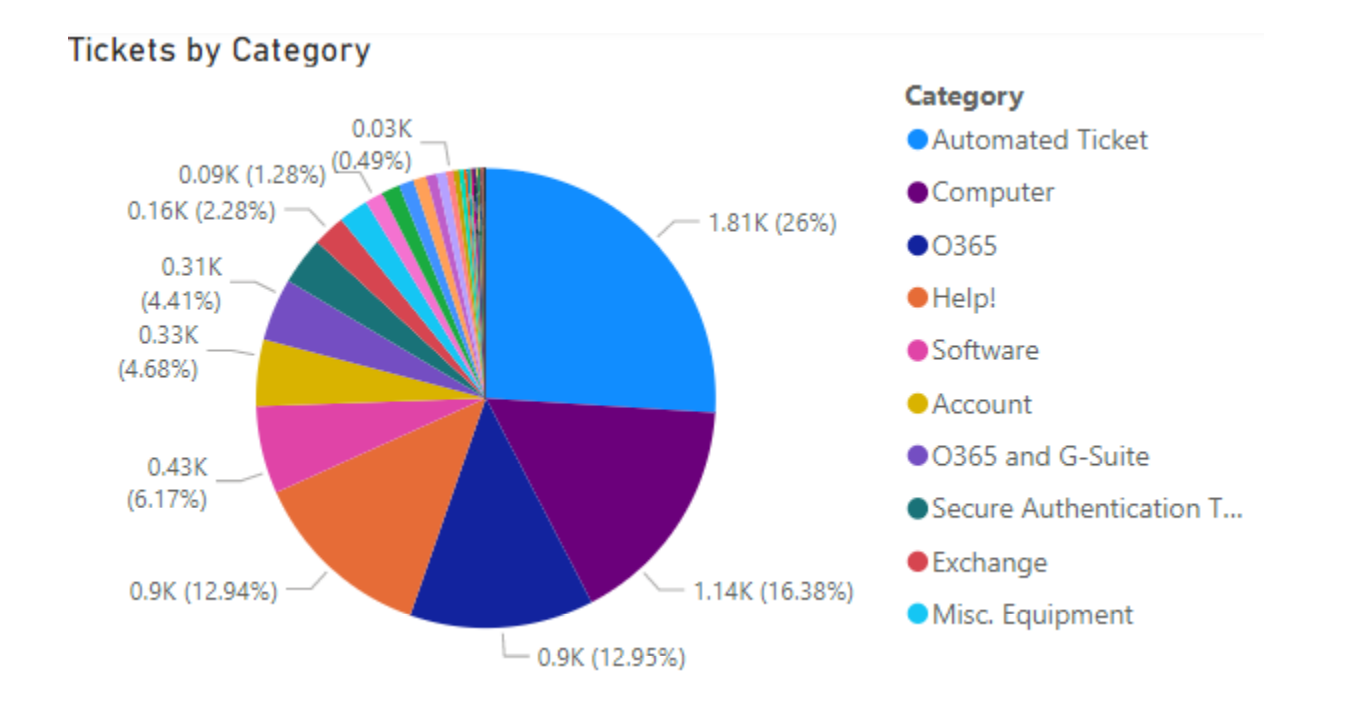
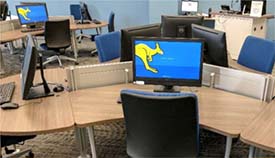 Over the last period an increased focus was placed to migrate existing workstation and server objects to the UM-AD domain. In preparation for this workstation migration all group policy objects (over 800) were reviewed and recreated in UM-AD.
Over the last period an increased focus was placed to migrate existing workstation and server objects to the UM-AD domain. In preparation for this workstation migration all group policy objects (over 800) were reviewed and recreated in UM-AD.
There are over 6,000 workstations objects to be migrated. During this period about 2,000 objects have been migrated. To facilitate this migration a new process was developed to enable technicians to migrate to the new domain quickly and safely with limited downtime for Faculty and Staff.
 Cadence is the UMKC approved and recommended solution for texting. This gives any department texting capabilities to better communicate with students, faculty, or staff.
Cadence is the UMKC approved and recommended solution for texting. This gives any department texting capabilities to better communicate with students, faculty, or staff.
Candence continues to be a popular tool for campus and IS has worked with multiple groups to onboard and enable texting for their department.
 Worked with other campuses to support and build upon our usage of O365
Worked with other campuses to support and build upon our usage of O365![]() Windows 10 continues to be the standard operation system for UMKC. During this period, we updated and standardized on Windows 10 21H2 to ensure Students, Faculty, and Staff had access to the most recent software.
Windows 10 continues to be the standard operation system for UMKC. During this period, we updated and standardized on Windows 10 21H2 to ensure Students, Faculty, and Staff had access to the most recent software.
We continue to test Windows 11 within IS to identify any issues and ensure compatibility with our standard suite of applications. We expect to standardize on Windows 11 starting in 2023.
![]() The Mac Admin Team implemented new security standards for local admin access on Mac OS devices. Newly imaged computers are now provisioned with a randomized password for local admin access, with the password securely stored in LAPS. This aligns with security standards already implemented in Windows OS. The team provided training on these new Mac OS related support processes to TSC Technicians.
The Mac Admin Team implemented new security standards for local admin access on Mac OS devices. Newly imaged computers are now provisioned with a randomized password for local admin access, with the password securely stored in LAPS. This aligns with security standards already implemented in Windows OS. The team provided training on these new Mac OS related support processes to TSC Technicians.
More than 100 licenses for mobile device management have been utilized within JAMF Pro as devices continue to be migrated from AirWatch to JAMF. This streamlines our Apple hardware management to a single tool and will eventually allow for the decommissioning of AirWatch.
During this period the Tech Support Center deployed all the WRP computers that were ordered in the previous period. This was the largest WRP in nearly a decade and consisted of 636 computers. To help facilitate the vast increased number of deployments special WRP deployment teams were created. This allowed us to get this equipment more efficiently into the hands of our faculty and staff.
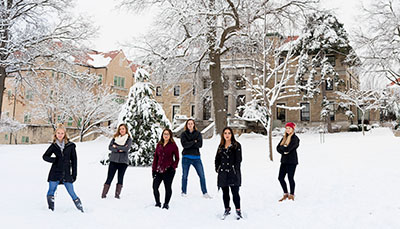 Windows 10 continues to be our operating system supported for faculty and staff PCs. During this period, the universal image was updated with new versions of our base software, including updates for Adobe Reader, Microsoft Teams, and Zoom. We continue to add new driver support as Dell releases new OptiPlex desktop and Latitude laptop models.
Windows 10 continues to be our operating system supported for faculty and staff PCs. During this period, the universal image was updated with new versions of our base software, including updates for Adobe Reader, Microsoft Teams, and Zoom. We continue to add new driver support as Dell releases new OptiPlex desktop and Latitude laptop models.
Continued to test Windows 11 internally within IS, with approximately 50 computers running the new OS. The testing has found no major application compatibility issues or issues with supported hardware. We will be moving forward with deployment of Windows 11 on all new computers following the release of Windows 11 22H2 this Fall.
Migrated several servers to the UM-AD domain. Consolidated license daemons to be able to serve license files across fewer servers and decommission a server running an end-of-life OS.
Updated over 24 individual license managers with updated daemons and/or license files. This is required to keep software, both for computer labs and researchers, able to run the latest version of their software. This included Abaqus, Ansys, AutoCAD, MATLAB, and many others.
 Performed regular website updates and maintenance, including the creation of a new webpage advertising the Cadence Texting Platform.
Performed regular website updates and maintenance, including the creation of a new webpage advertising the Cadence Texting Platform.
Began the project to migrate the IS website into the Cascade CMS platform. In coordination with MCOM, the basic site structure is taking shape. The site homepages and service catalog are expected to be the first content migrated.
Updated several reports and the database they rely upon to reflect the school and department changes for the Fall 2022 Academic Realignment. Specifically, these changes will ensure the annual Workstation, Software, and Mobile Device budget reports will have accurate data for the realigned academic units.
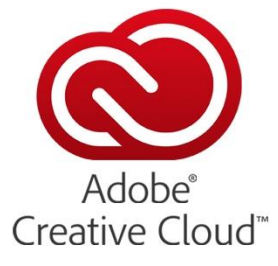 Completed System-wide contract renewal for Adobe software. This was a large undertaking that spanned several months.
Completed System-wide contract renewal for Adobe software. This was a large undertaking that spanned several months.
Continue to leverage RooLabs Online to offer Adobe Creative Cloud to students who may not otherwise have access to this software.
Worked with Arts and Sciences to provision student licenses of Adobe software for their students that need it for curriculum.
As a division, we have worked with several academic and business units to renovate, design, install and provide ongoing support for multi-faceted information technology (IT) and audiovisual (AV) systems. The following sections discuss the key IT/AV projects, by phase, which consumed a significant amount of IS resources' time during this last review period (January – June 2022).
This project is to add digital signage to the first and second floors of the Administration Center so that guests would see university notices, schedules, and directories. The first phase of the project was to install non-touch screens that included the RISE program. One screen is to be placed on the first floor in the entry space as guests walked in. CFM was brought in to paint the baseboards, and a window cling and wall image was installed. The other screen is to be placed on the second floor on the wall adjacent to the Parking office as guests walk in. No painting was done in this space. The second phase of the project includes replacing the non-touch screens with touch screens, which will be addressed in a separate project in the future. The first phase of this project was completed, and non-touch screens tested as working, and the project was closed on 3/25/2022 with a 90-day warranty until 6/25/2022.
UM System has purchased a new product, Brainware OCR, for all four campuses. It will initially be used for transcript processing. This product will be supported centrally by the Perceptive Content (Image Now Team). During this review period, we completed testing, the product was put into production and this project was closed.
This project is to provide a solution for students to have lab equipment to do machine learning. This solution includes installing equipment from Lambda Labs into the FERC Data Center. An uninterruptible power supply was also installed. This project also involves the installation of MATLAB software and licenses. The equipment was tested as working and project was closed on 3/4/2022, with a 90-day warranty ending on 6/4/2022.

This is a grant-funded project to completely renovate Bloch Heritage Hall. The IT/AV scope includes an upgrade of the network infrastructure of the building, IT closet builds, and ILE technology updates to the classroom and spaces in the building. During this review period, IFS began pulling all the horizontal cabling for the project, coordinating each floor with the contractor for readiness. IFS also began building out the ladder racks in all of the telecom closets. Most of the horizontal cabling was completed within this period but a lot of coordination was required with the GC. IS also finalized the A/V design for classroom and conference room spaces and submitted the equipment order with vendor. IS took on the additional scope (designing, ordering and install) of adding Wi-Fi coverage for the Bloch Garden portion of the project. During the next review period, IS will work to complete any IFS related work prior to the July 30th grand opening. The group will continue to track A/V equipment orders and begin installing A/V equipment when available.
The scope of this project is to review current cloud storage offerings to determine use cases, needs, etc., and to make recommendations around which tool(s) are most appropriate for various situations. During this review period, available cloud options were outlined in a document, along with use cases for each option. The document was shared with IS leadership for review.
At the request of UMKC’s CIO, IS was to use some of the remaining EOY funds on replacing cameras across the campus. IS decided that due to supply chain and resource issues it would be best to outsource this work to a contractor, Wachter. IS met with Wachter on three separate occasions to quote replacing 100 cameras across the campus, installing about 20 new cameras with infrastructure around campus for the PD and replacing another 65 cameras across the campus. During the next review period, IS and watcher will begin to coordinate the pre-work before installation begins and then coordinate a start date for installation when Wachter has received enough equipment that may be added to the project.
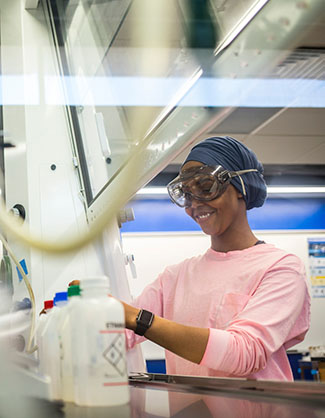 Network Architecture is responsible for the installation and maintenance of departmental-level firewalls. These firewalls protect specialized hardware or data (HIPPA, PCI, etc.) in specific locations across the UMKC network. Activities include maintaining appliance firmware and security rules.
Network Architecture is responsible for the installation and maintenance of departmental-level firewalls. These firewalls protect specialized hardware or data (HIPPA, PCI, etc.) in specific locations across the UMKC network. Activities include maintaining appliance firmware and security rules.
Equipment managed:
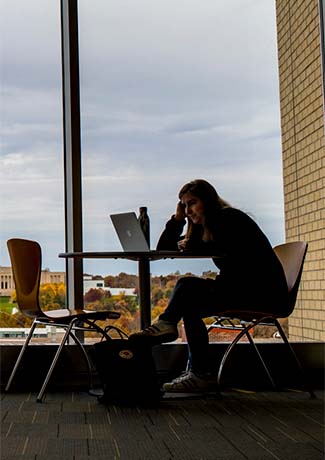 Database Server Design, Implementation and Administration
Database Server Design, Implementation and AdministrationProvided maintenance and support for these software applications, websites and services including:
Provided campus representation on the following working groups:
IS Foundation Services (ISFS) provides secure, professionally managed data centers to meet the growing information technology (IT) needs of academic and administrative units at UMKC. ISFS serves as the primary system administrator for 400+ servers, provides assistance and technical support for campus IT Liaisons, supports the Google Cloud Platform (GCP) for UM System, and provides research computing training and support.
On this page